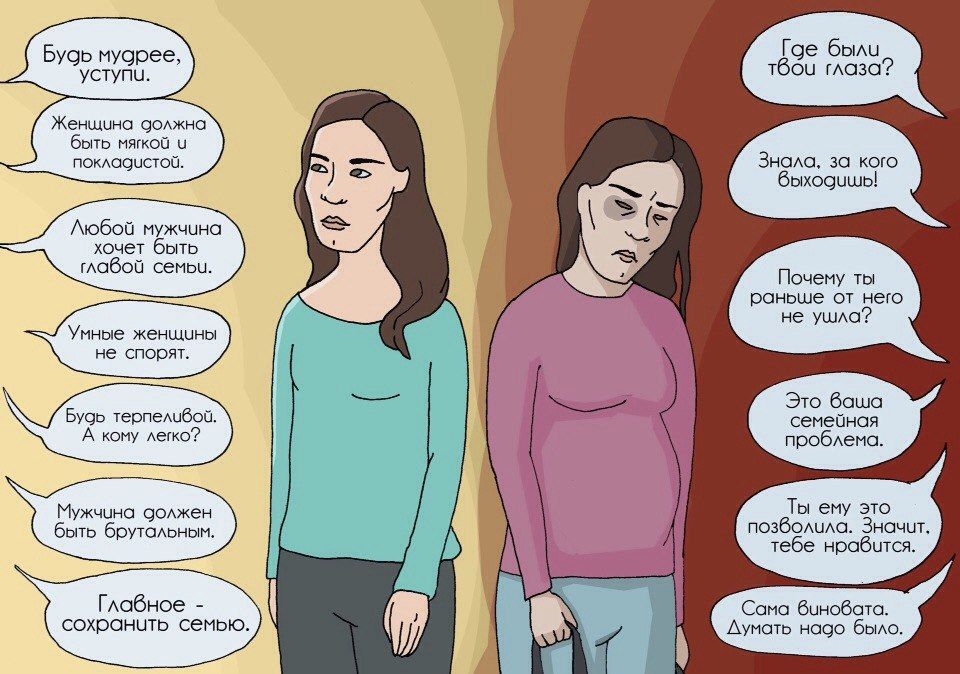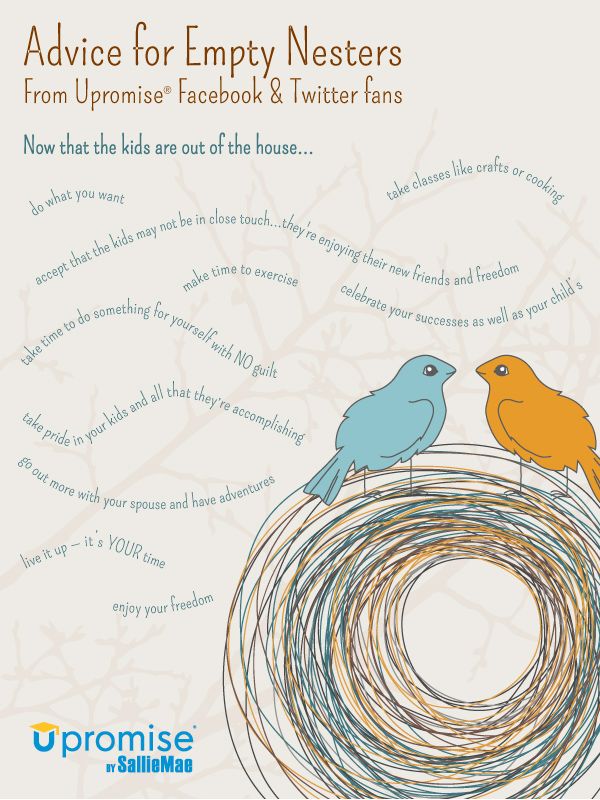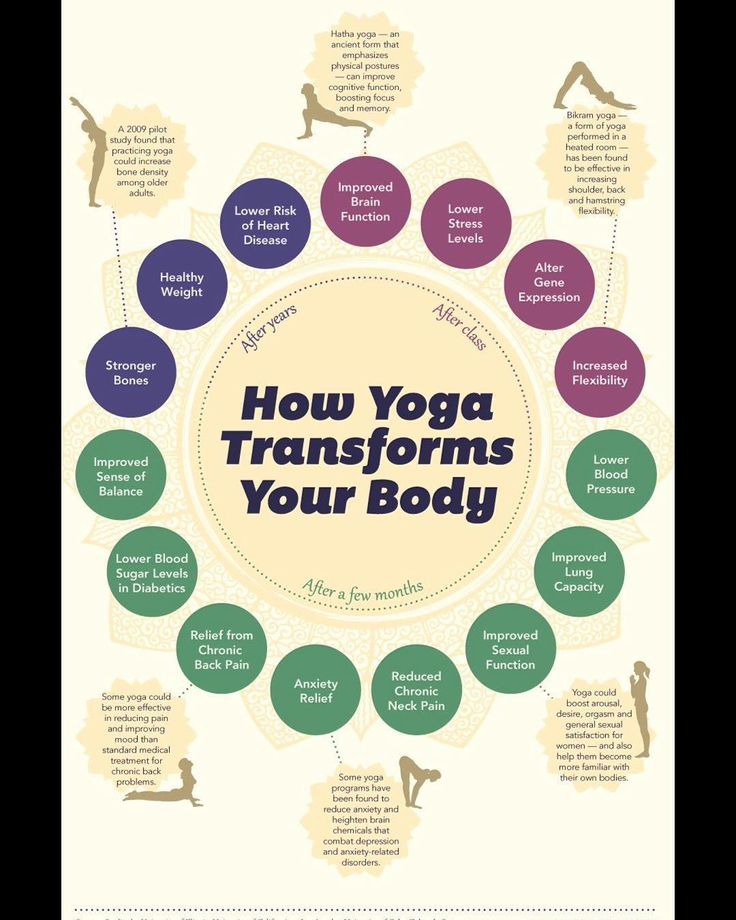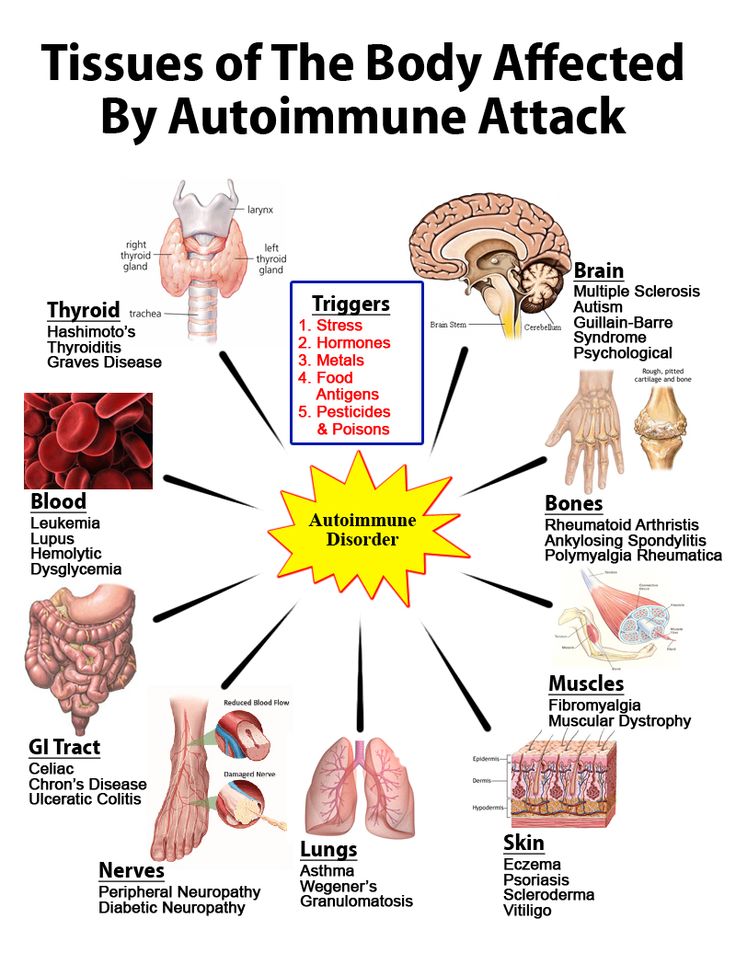Husband lacks empathy for wife
What To Do When Your Spouse Lacks Empathy
You want your spouse to be fully present with you in your feelings, thoughts and situations in life. But what happens when they don’t show empathy? You probably feel alone, unimportant and misunderstood. You’ve opened up, but your spouse seems unable or uninterested in responding in an empathetic way. So, what do you do when your spouse lacks empathy?
First, my heart goes out to anyone married to a spouse who indeed lacks empathy. This is a hard road.
Let’s begin by establishing what we mean by the word empathy. According to Harvard psychologist Susan David, “Learning to label emotions with a more nuanced vocabulary can be absolutely transformative.”
The term empathy has evolved and has recently exploded in popularity.
That’s great, but it can be confusing if it’s not clearly defined. In Atlas of the Heart: Mapping Meaningful Connection and the Language of Human Experience, researcher Brené Brown describes two types of empathy:
- Cognitive Empathy is sometimes called perspective-taking or mentalizing.
It’s the ability to recognize and understand another’s emotions. “Your best friend told a bunch of people something you confided in them! It’s completely understandable to feel betrayed. I get you.”
- Affective Empathy is often called experience-sharing. It is one person’s emotional attunement with another’s experience. “Your best friend told a bunch of people something you confided in them! I feel that sting of betrayal. I feel you.”
Your spouse is the one person you hope will get you and feel you. Why? So they can be there for you. (In whatever way you need them to be.)
Simple phrases like, I get you, I feel you, and I’m here for you, are gestures toward empathy. When they’re sincere, they mean I. Am. With. You. You are not alone. But empathy doesn’t stop there. Empathy isn’t complete without action.
Empathy should lead your spouse to put self aside, be present in your story and absorb it. They understand, believe and validate it and you… they don’t judge, criticize or dismiss it and you. (And they definitely don’t make it about them.) Empathy is the catalyst to respond with appropriate, compassionate actions.
They understand, believe and validate it and you… they don’t judge, criticize or dismiss it and you. (And they definitely don’t make it about them.) Empathy is the catalyst to respond with appropriate, compassionate actions.
Telling your spouse they’re not empathetic is probably not gonna help. It’s more of a label when you actually need their labor. You need them to do the relationship work to get outside of themself and be considerate of you.
You may be able to help your spouse who lacks empathy by fine-tuning your communication. Be clear and direct about what you need. Invite them into your story. Frame the conversation by saying things like, “At the moment, I’m not looking for you to judge me, give me advice, or share your opinion. I need to feel heard and understood.”
Pause. Reframe. Rephrase. “I need you to be present with me.”
Begin your statements (like the ones below) with “I need you to…”
- Understand how I feel and care about my feelings.

- Listen to what I’m thinking and consider my thoughts.
- Hear me and care. I need to know I have your full attention.
- Support me and be my partner in this situation.
- Understand this part of me I’m trying to share with you.
- Understand how important this is to me.
Empathetic conversations can lead to tangible, actionable things for a caring spouse. You can set measurable goals around these statements. Often, we can address a lack of empathy with better communication. There is help and hope to improve communication so you feel heard and understood.
But what if this doesn’t snap my spouse out of themself and into being present with me?Why isn’t your spouse empathetic even when you ask them to try to empathize with you? There can be a variety of reasons. We don’t fully understand why some people are more empathetic than others or why some people have little to no empathy. But there are indications that a person can learn to be more empathetic.
But there are indications that a person can learn to be more empathetic.
Here are a few things
you can do:1.
Model empathy for your spouse.Make empathetic statements “out loud” and do empathy work “out in the open” where your spouse can see it. For example:
- Help me understand how it felt to get that raise at work…
- Sarah, how did it feel when Hunter wouldn’t share his toys?
- Imagine what it must be like to lose everything as those people on the news did.
- Amanda, I’m not going to offer unsolicited advice. I just want to sit with you as you go through this difficult time. You tell me what you need.
2. Practice talking about emotions with your spouse.
Try books, games, apps, and websites with “get to know you” questions and conversation starters. This can be a helpful practice for discussing your interior lives. Make it a “Judgment-Free Zone” and a safe sharing space.
3.
When your spouse does express empathy, acknowledge it and thank them for it.Hard Relationships. Hard Choices.Living with a spouse who isn’t empathetic can be draining and demanding. Because your spouse lacks empathy, they might be critical, cruel, or unforgiving. They may react with anger when they feel like you are being “too sensitive.” They could be oblivious to how their behavior affects you, or be unresponsive to your needs.
Unfortunately, this might be your reality. It’s one thing to be patient with the change process and support growth in your spouse. It’s quite another to be hurting all the time and in over your head.
Here are things to consider:
1.
It’s not your job to “fix” your spouse.Several factors can contribute to someone’s inability to empathize. Genetics. Socialization. Childhood trauma. Your spouse may have grown up in a family that suppressed emotions. You can support and encourage your spouse if they’re trying to grow in this area. But this may be an issue they need to work through. You also need to recognize if they’re not trying to grow in this area.
You can support and encourage your spouse if they’re trying to grow in this area. But this may be an issue they need to work through. You also need to recognize if they’re not trying to grow in this area.
2.
Seek professional help.Diagnosable disorders may play a significant part in why your spouse lacks empathy (Narcissistic Personality Disorder, Antisocial Personality Disorder, or Borderline Personality Disorder, etc.). Know when to bring in the professionals. But remember: Your spouse may not change.
And if abuse is going on, it may not be a safe relationship for you to stay in. Your safety and mental health are important.
**Constant criticism, mocking, and devaluing your thoughts and feelings are forms of emotional abuse, and if your spouse is completely unwilling to get help to change their behavior, that’s not ok. Understand what abuse is in all of its forms. [See below for The Domestic Violence Hotline number. ]
]
3.
Find validation from within and from other supportive people in your life.It can take quite a bit of time for your spouse to hone their empathy skills. It’s a process that will have ups and downs. You can’t allow your self-worth to be tied up in their ability to empathize with you; it should come from within. Practice self-acceptance and self-care, and in the meantime, turn to trusted friends you can share your thoughts and feelings with. And there’s no shame in seeking a counselor for yourself, either.
Life is certainly not easy with a spouse who lacks empathy. You can do several things to improve the situation. But you also need to recognize when those things aren’t working. Many people have successfully maintained their marriage knowing that their spouse may have many positive traits, but being empathetic is not one of them. You can set boundaries with your spouse and still get your need for empathy met in other healthy ways.
At the end of the day, we all want to be heard and understood without judgment. And chances are, you both want your marriage to be a safe space to share your thoughts and feelings. Fine-tune your communication around what empathy looks like in your relationship. Practice talking about feelings. Dig deeper into understanding and believing in each other. Recognize and appreciate any progress toward more empathy – it’s a process that will bring you closer together in the end.
And chances are, you both want your marriage to be a safe space to share your thoughts and feelings. Fine-tune your communication around what empathy looks like in your relationship. Practice talking about feelings. Dig deeper into understanding and believing in each other. Recognize and appreciate any progress toward more empathy – it’s a process that will bring you closer together in the end.
*Special thanks to my colleague, Tamara Slocum, for her insights/contributions to this piece.
Susan David, Ph.D.
Brené Brown
Atlas of the Heart: Mapping Meaningful Connection and the Language of Human Experience
8 Steps to Better Communication Today
Empathy Definition | What Is Empathy
The Origin of Empathy
The Surprising History of Empathy | Psychology Today
The Secret to a Happy Relationship Is Empathy | Psychology Today
What to Do If You or a Loved One Lack Empathy
Resources:Why Should I Consider Counseling? – First Things First
How to Find a Counselor Who Will Fight for Your Marriage – First Things First
How to Crack the Code of Men’s Feelings | Psychology Today
Keys to Effective Communication in Marriage – First Things First
Why Some People Have a Lack of Empathy (And How to Deal with Them) – Lifehack
200 Questions For Couples
**Domestic Violence HotlineDo you feel safe? For a free, confidential, and clear understanding of what defines an abusive relationship, click here, or contact the Domestic Violence Hotline, 24/7, at 1−800−799−7233.
Did this blog give you the information you were looking for and give you tools to help improve your relationships?
10 Ways on How to Cope With Lacking Empathy in Relationships
In This Article
A relationship lacking empathy will hit the rocks sooner or later. The fun in every relationship is for the two partners to understand and care for each other no matter the circumstances. When one person refuses to understand another person’s point of view, it inhibits the healthy growth of the relationship.
Dealing with someone who lacks empathy can be daunting, especially when you love them. However, the inability to empathize often stems from background and experience. In other words, when someone lacks empathy, it might not be entirely their fault.
People who lack empathy lack self-confidence and self-love. When you notice that your relationship is lacking empathy, it might be the right time to change things. If you wish to know how to deal with a lack of empathy in your relationship, keep reading this article.
Related Reading: How to Build Empathy in Relationships
What is empathy?
Empathy is the understanding of how others feel and being compassionate toward them. In other words, empathy is the awareness and acknowledgment of others’ feelings and emotions.
Empathy means the ability to sense another person’s feelings and emotions even when they don’t talk. We can also say empathy is the ability to be sensitive towards feelings at the moment. Inability to show empathy means there is a lack of caring.
You know others are going through some terrible experiences, but you don’t care. It is not just enough to recognize people’s emotional reactions. You must respond appropriately to them so that they can feel better.
The common saying “Putting yourself in others’ shoes” relates well with empathy. It means you should imagine yourself in another person’s situation or circumstances.
Even if you have no idea what others are going through, imagine them to be you and awaken you to their realizations. It goes as simple as asking yourself, “If I were to be this man, how would I feel?”
It goes as simple as asking yourself, “If I were to be this man, how would I feel?”
Empathy is all about being conscious of others’ emotions. To fully understand the concept of empathy, you must go through three stages of emotions. First, you must recognize, perceive, and respond correctly. It may look like your response will not help the situation, but you will be shocked at the effect. Your little action can be what the other person needs after all.
Why is a lack of empathy a problem for a marriage?
Lacking empathy in a marriage is a significant issue in relationships. People go through different unpleasant experiences every day. It is a great pleasure to have someone to tell you about these problems, too – someone to hold you tight and relate with you.
The inability to empathize with one’s partner when they describe their situation shows a lack of compassion. A relationship may last or not, but marriage is a long-term commitment. It is the relationship you can’t rush out of all of a sudden when a problem arises.
You don’t necessarily have to experience what your partner is going through. Nonetheless, you and your partner should be each other’s haven or safe place when the tides are unstable. Thus, lacking empathy in a marriage is a big problem.
When a spouse lacks empathy in a marriage, it means they don’t regard their partner. Also, it means you both don’t have a mutual and healthy relationship. Instead, what you have is a mere transaction.
People who lack empathy or non-empathetic partners focus too much on themselves that they don’t see others. Showing no empathy in your relationship puts a barrier between you and your partner. Dealing with someone who lacks empathy is challenging but not impossible.
Reasons spouse might lack empathy
There are a number of reasons your partner shows a lack of caring or lack of compassion. Reasons for lack of empathy in a relationship range from emotional problems to physical problems. Check the following for possible reasons a spouse lacks empathy:
One main reason your partner is lacking empathy is that they don’t understand the message you are trying to pass to them. For instance, telling your partner that you are lonely when you practically live together is unclear. Apparently, they just don’t pay attention to you.
For instance, telling your partner that you are lonely when you practically live together is unclear. Apparently, they just don’t pay attention to you.
In addition, your partner may be going through some personal problems, including health, career, or financial trouble. Partners hide their health status to protect them or prevent them from overreacting. In this scenario, they might be overwhelmed and appear to show a lack of compassion.
10 Ways to deal with people who lack empathy
People who lack empathy don’t understand the effect of their inability to empathize with their partners. If you want to know how to deal with a lack of empathy in a relationship, check the following:
1. Express your messages clearlyInstead of expecting your partner to guess how you feel because you are suddenly moody, calmly communicate with them. While you are busy with your emotions, your partner may be going through another issue. Instead of whining, tell them your experience without mincing words.
Related Reading: 15 Ways on How to Communicate in a Relationship With a Man2. Empathize with yourself
You can deal with your partner’s inability to feel empathy by showing yourself some self-care. Be vulnerable about how you feel because sometimes we expect a lot from our partners when we can’t reciprocate.
Show yourself self-compassion by being honest about your pain and suffering. See yourself as your spouse or closest friend. If it were others, you would help them, right? So, why not help yourself instead of expecting your spouse to do that.
3. Understand that your partner is differentSometimes, we feel our relationship is lacking empathy because our partners don’t react the way we expect. To deal with a non-empathetic person, you must know that people differ in character and attitude. Your partner’s inability to show empathy does not mean they are wicked.
Don’t expect your partner to validate your feelings or meet them with the same level of emotions. After all, only you know where it hurts. Instead, acknowledge their little effort in helping you feel better.
After all, only you know where it hurts. Instead, acknowledge their little effort in helping you feel better.
Related Reading: How to Improve Understanding in a Relationship4. Help your partner
What is the essence of a relationship if the partners can’t help each other? When there is a lack of empathy in a relationship, you can reduce the effect by teaching them how to empathize with others.
For instance, when you pass by a person and greet them, you can ask your partner, “How do you think she feels?” “Why do you think he acts in that manner?”
Gradually, your partner will start giving thought to people’s expressions and feelings. When it comes to your turn, it should be easy.
5. Show empathy around your partnerYour partner may be lacking empathy because they don’t know how to empathize with others. So, you can make them see the processes of compassion in real-time. Show them that being nice is the first step to competing lack of compassion or lack of caring.
After that, help them with specific questions to ask themselves when they see others’ expressions. For example, as short as “Are you all right?” can go a long way in setting the foundation for empathy.
6. Strengthen your relationship with othersLack of empathy in a relationship can make you depressed and think no one can help you. However, you can cope with your partner’s inability to empathize by developing your relationship with others.
Talk to a few people with whom you feel comfortable sharing your inner feelings. Ensure they have shown empathy in the past, and don’t forget to reciprocate when they need you the most.
Related Reading: How to Strengthen Your Relationship Connection- Expert Advice7. Pay attention to your partner
Expecting your partner to show you emotional support without paying attention to them may affect your relationship. If you want to show your partner compassion, you must give your partner undivided attention every time.
That may help you sense a change in their emotions and feelings. Putting everything on hold to attend to your partner reveals that you care about them. That can push them to reciprocate in the future.
8. Listen to themThe basis of lack of empathy in relationships is the inability to listen to each other. Remember that listening is quite different from hearing. Your partner may face you and hear every word but not pay attention to them. Instead of constantly blaming them, try to listen to your partner when they talk.
It is best not to criticize or judge them at any point. Rather, listen because you want to understand their feelings and help them feel better. Once the conversation is over, tell them you would like them to do the same for you in the future.
9. Invite them to the issue intentionallyHumans are different as they come from different backgrounds and have different experiences. Some people need permission before offering you a shoulder. It does not mean they are insensitive outrightly; they don’t know how.
It does not mean they are insensitive outrightly; they don’t know how.
When someone lacks empathy, you should consider inviting them to your feelings by asking them how they feel about a particular situation. This question alone can open the floor for a long and exciting conversation. It is a way to make your partner feel like their opinion matters.
10. Visit a therapistIf you have effortlessly tried to help your partner empathize with you, it might be the time to see a professional.
Seek a supporting and caring therapist who can help you through your situation emotionally. Ensure the therapist is an experienced one who has helped people like yourself in the past.
ConclusionLack of empathy in relationships is one of the most common problems between partners. Showing empathy is to understand another person’s feelings and show compassion. When you ignore your partner’s emotions, you imbibe in lack of compassion and lack of caring.
If you want to know how to deal with a lack of empathy, you need to care for yourself. Also, help your partner build their empathy skills by showing them how to understand other people’s feelings.
Also, help your partner build their empathy skills by showing them how to understand other people’s feelings.
To know the signs of lacking empathy, watch this video.
People not capable of sympathy and support - who are they?
— How, well, how can you be such a cold, indifferent and heartless person?
If this question periodically blows your mind, this article is for you!
Because today we will talk about why your husband (wife, mother or girlfriend) is unable to support you in difficult times. Why instead of support you get: the accusation “It’s your own fault, but what did you want!”, irritation “I also found a problem for me!” or advice: “Stop smearing snot, don’t like it, get out of there!”
And maybe you will recognize yourself in this description...
But no matter which side of the problem you are on, this article is for you, because you, in turn, are a victim of toxic attitudes towards you in childhood. And I want to show you the secret mechanism of what happened once and continues to happen in your soul to this day, so that you have a chance to start changing it and stop maiming the next generation - already your children.
And I want to show you the secret mechanism of what happened once and continues to happen in your soul to this day, so that you have a chance to start changing it and stop maiming the next generation - already your children.
Remember the childhood fairy tale about the boy Kai, who was kissed by the Snow Queen and the girl Gerda? The tale is a lie, but there is a hint in it. Unfortunately, the story of Kai and Gerda pops up again and again in the offices of psychotherapists. But let's look into the everyday life of Gerda, who fell in love with Kai and married him.
Kai is a person wounded in the soul in childhood. Living with Kai is very painful. He can be smart, interesting, talented and reliable, but... he is a person with a piece of ice in his heart. Part of his soul was frozen in childhood by the most important and dear person to him, the most powerful sorceress of the child's soul - his own mother.
Kai's love is very peculiar: without sympathy, empathy, emotional support. He can be cheerful and caring (in his way), but only as long as you are doing well.
He can be cheerful and caring (in his way), but only as long as you are doing well.
But in difficult moments of life, when you are worried, tired, ill, frightened, you will find yourself in front of the ice fence of his soul.
When you are under stress, he breaks down and adds stress to you with his shouting, sarcasm, ridicule, criticism or rudeness.
When you are in pain, he will ignore you or emotionally “finish you off”.
When you seek help and support, you will receive pursed lips, a cold response, or caustic sarcasm.
If you are afraid, expect ridicule.
And, yes, if you come down with a serious illness, he will give you water or take you to the doctor, but he will do it in such a way that it is better to crawl for this glass of water on your own.
You would receive more understanding, warmth or sympathy from any stranger than from your own Kai. Your tears cause him only irritation and even greater coldness. Since he is incapable of experiencing sympathy, he sees in the expression of your pain only an attempt at emotional manipulation.
At such moments you think that he is doing all this to spite you. No! Alas, poor Kai suffers too. In the depths of his soul, he is very dark, cold and lonely. His soul is just as vulnerable. He also lacks acceptance, understanding and warmth. He needs them, perhaps 10 times more than you, because, unlike you, he was deprived of them 10 times more. But he does not know how to take them in a state of stress. And he is also not capable of giving them to you in return.
But let's look at where people with a frozen soul come from. This freezing is a protection from children's pain. The result of a toxic relationship with mother, when a child, faced with his childhood problem or emotion, instead of understanding, acceptance and emotional support, received indifference, coldness, criticism or ridicule. From time to time. Year after year.
Look at a 3 year old baby. This is a tireless motor to explore the world. He is on the move all the time. He makes hundreds of mistakes and falls, but tirelessly continues his activities. What happens when a baby bumps into an insurmountable obstacle, such as being unable to reach a toy? That's right, he experiences frustration: angry, freaking out, angry. Frustration is a mobilization that allows you to overcome an obstacle with even greater effort. The kid tries even harder, groans, stretches, looks around and puffs a chair. He is all assembled, mobilized to overcome the obstacle. If the chair did not help, you can call your mother for help, if you can’t hear, call louder and more insistently.
He makes hundreds of mistakes and falls, but tirelessly continues his activities. What happens when a baby bumps into an insurmountable obstacle, such as being unable to reach a toy? That's right, he experiences frustration: angry, freaking out, angry. Frustration is a mobilization that allows you to overcome an obstacle with even greater effort. The kid tries even harder, groans, stretches, looks around and puffs a chair. He is all assembled, mobilized to overcome the obstacle. If the chair did not help, you can call your mother for help, if you can’t hear, call louder and more insistently.
This is plan A - to overcome, to try, to give everything. For this, stress hormones are produced in the body, which provide the stage of frustration and mobilization. In most cases, this ends with success, the triumph of getting what you want. Stress is relieved by joy.
But there are moments when the barrier failed: the chair fell and hit the leg painfully, or it wasn't high enough, or the adults strictly said that it was impossible! Stress hormones are already in the blood, and the victory with joy broke. What to do?
What to do?
Go to plan B: accept defeat, at least for now. Experience frustration and comfort. That is, physiologically move from mobilization to demobilization, get out of a state of stress in the other direction - not in the direction of joy, but in the direction of sadness and humility. Tears help a lot here. Crying relaxes and gives you the opportunity to pour out your feelings, and in the literal sense: the breakdown products of stress hormones are released with tears.
It is equally important for our body to be able to get together and break through, as it is to accept and relax.
The transition from mobilization to demobilization requires relaxation in order to stop vigilance and have a safe opportunity to withdraw into yourself: surrender to feelings, lose vigilance, allow yourself to "see nothing from tears." And here we come to understand the importance of psychological refuge or, in more scientific terms, emotional containment. It is difficult to do this without having a protective psychological cocoon around. container. Psychological womb. Someone who, by their behavior, will make it clear: “Rely on me! I'm there, I'm with you! I am now responsible for your safety, protecting you from the world, and you just relax and let the stress go away.” Remember the plots of action films: the main character shows miracles of resilience and heroism, but when everything ends and the danger is behind, she sobs, buried in the shoulder of her beloved or father. As soon as someone who can contain us appears, the best thing is to immediately stop controlling yourself, cry out stress, soften in loving hands. And then a powerful wave of the hormone of trust - oxytocin will wash away stress, relax the muscle and blood vessels. And she will be "as good as new", ready to live, love and dare.
It is difficult to do this without having a protective psychological cocoon around. container. Psychological womb. Someone who, by their behavior, will make it clear: “Rely on me! I'm there, I'm with you! I am now responsible for your safety, protecting you from the world, and you just relax and let the stress go away.” Remember the plots of action films: the main character shows miracles of resilience and heroism, but when everything ends and the danger is behind, she sobs, buried in the shoulder of her beloved or father. As soon as someone who can contain us appears, the best thing is to immediately stop controlling yourself, cry out stress, soften in loving hands. And then a powerful wave of the hormone of trust - oxytocin will wash away stress, relax the muscle and blood vessels. And she will be "as good as new", ready to live, love and dare.
In the case of minor stresses, most psychologically healthy people are able to move from mobilization to demobilization on their own: curse (for example, when they didn’t catch a bus that left from under their noses, but we were mobilized - we caught up) and relax.
In case of more serious stress, it is quite difficult to do without containment. Therefore, being social beings, we constantly become such a psychological womb for each other.
Container behavior is an unconscious, species-specific behavior. Imagine that your colleague receives a call from home with tragic news. He is in shock. You will start containerizing without hesitation: hug your shoulders, show basic care: pour water, offer to sit down. If at this moment someone comes in with a question, stop him with a glance from entering the container of care and protection you have created, make it clear that now is not the right time. You will not plan these actions, it is bad for your neighbor - the program has turned on. Containerization behavior not included only in people with disorders (eg autism spectrum disorder) or those who were not contained in childhood.
Children experience stress and frustration more strongly. Their nervous system is not yet mature and needs outside help. Without containment, it is difficult for a child to get out of frustration and move on to demobilization and relaxation. The child actively explores the world, but after each stress, he returns to his parents for refueling with love, so that, having been fed with safety, acceptance and care, he can return to an OK state and continue his activities.
Without containment, it is difficult for a child to get out of frustration and move on to demobilization and relaxation. The child actively explores the world, but after each stress, he returns to his parents for refueling with love, so that, having been fed with safety, acceptance and care, he can return to an OK state and continue his activities.
What if the parent doesn't contain? If, instead of comforting and encouraging hugs, he shows indifference (and you can handle it yourself), scolds or shames? If the child hears: “And I told you - don’t go in! It's my own fault!" If instead of sympathy there are accusations, advice and explanations that there is no problem, that it’s not scary, it doesn’t hurt so much and there’s nothing to cry about? The child cannot afford to relax. The situation has not been resolved for him. He is forced to "control himself" himself. Where do you put your feelings? They have to be swallowed, blocked, suppressed. How to freeze in your soul. Become insensitive to this pain. For a small child, this is the only way out - dissociation - detachment from feelings.
How to freeze in your soul. Become insensitive to this pain. For a small child, this is the only way out - dissociation - detachment from feelings.
Stress remains in the psyche like an unpulled splinter. And she will whine quietly, and if she is touched by a similar situation, it will become as unbearably bad as then. The ability to contain oneself does not fall from the sky; it is formed as a result of the care received from others. If I was not containerized, where will I learn it? And if the reaction of parents to children's stress was not temporary, but permanent, the child "puts on the armor" of insensitivity for good. Becoming a little lifeless: I am calm, I am not upset. It hurts - I don’t cry, offended - I won’t complain. I can handle everything myself. I don't need help. Convenient, isn't it? I myself control myself all my life, and without giving this right to myself, I don’t give it to others - I am annoyed by the “snot and drool” of others.
And then the child faces two paths.
First, the child, not relying on the help of adults, simply refuses to overcome barriers. To remain alone in the grip of stress is so painful that it is better not to start mobilization, but to surrender immediately.
Second - the child mobilizes, but does not learn the transition to demobilization, stress is locked inside, a person lives with chronic frustration at everything and everyone, and sometimes anger breaks out with uncontrollable rage. And a person grows up insensitive to someone else's pain, incapable of showing simple and natural compassion.
This is Kai, a man with a broken compassion program in his soul. To yourself and to others. With a program "read" from the parents to respond with irritation or indifference to someone else's pain , because this is what he saw and felt in relation to his pain. He can't do it any other way.
P.S. If you have a question, is it possible to fix it, I will answer. Yes, you can. But this is a long and difficult path, a prerequisite for which is a person's awareness of his problem and the desire to change it.
Yes, you can. But this is a long and difficult path, a prerequisite for which is a person's awareness of his problem and the desire to change it.
Loneliness together: where does love go?
Estimated reading time: 15 min.
-
100%
+
Embed code
Code copied
"My wife and I have long been strangers." "He doesn't understand me at all." “Yes, I somehow got used to it already, I don’t really expect anything.” “The wife is constantly dissatisfied with something, no matter what you do, everything is wrong.” After all, they marry the most dear, closest in spirit people. And a few years pass - and there is nothing to talk about. And there is nothing to wait. And rely on no one. How does it work out like that?
Every unhappy family is unhappy in its own way, said Leo Tolstoy, the first serious researcher of family unhappiness. "There was something false in the whole warehouse of their family life. " “The terrible thing is that suddenly my soul turned over and instead of love, tenderness, I have only anger towards him, yes, anger.” "Oh my god! Why did he have such ears?” “... when both happened in a bad mood, then the clashes occurred from such incomprehensible insignificance reasons that later they could not remember what they quarreled about” ...
This is eternal. It does not become obsolete, does not change, although centuries, political regimes, forms of ownership and laws change.
It's lonely and creepy when you don't hear. It is lonely and creepy when the closest person does not understand religion, when it is impossible to share the most important, deepest experiences with him - and what to do with this loneliness, only a wise priest can probably tell.
No, we come into the world alone and leave alone, and before God we stand alone, and loneliness seems to be a natural human condition. But not just because we were given the second half.
But there are happy marriages, because people manage to live together for decades - not to get sick of it, not to quarrel, not to leave to start all over again. Why do some succeed and others don't? We are talking about this with a psychologist, group psychoanalyst Zoya Zvyagintseva.
It's boring in this world, gentlemen Photo by Petr Murashov
“It's boring,” he says. “I know by heart everything she will say to me in response. I know what book she's reading, even if I can't see the cover. I can guess her thoughts and I'm never wrong. She is kind, good, loving, she has order and delicious food, but I have nothing to talk about with her.
This, if you like, is the tragedy of engineer Shchukin with Ellochka the cannibal, even if we assume that Ellochka is modest and patient and does not call her husband a fat and handsome fellow.
This is the tragedy of the coachman from Nekrasov's poem "On the Road": he was married to a lord's pupil, for whom everything is bad, everything is uncomfortable in peasant life - "Indus is a pity sometimes ... but where to! You can’t console her with a new thing: Either the cats rubbed her leg, Then, listen, she’s uncomfortable in a sundress. In front of strangers, here and there, And stealthily roars like a crazy one ... "
This is the story of the electrician Petrov from the song of the duet “Ivasi”, who married “a candidate of some kind of science”, “tried to be well-read and meek, adored Degas and Kafka with her, in the evenings he burned the neighbors’ wiring so that she would have a TV didn’t interfere with thinking” - and then “stole a wire from work and plugged an iron hook into the ceiling.”
But maybe it's not that husband and wife can't talk about Kafka? What if one does not understand gas piston generators, and the other does not understand the poetics of the late Brodsky or the perforated ulcer clinic? It seems that we are not starting a family for professional consultations, not for self-education, not for evening conversations about geopolitics?
The problem is not that there are no intellectual depths, but that one person is not interesting to another - with all his thoughts and feelings, with all the content of his soul. “Share with me what you know, and I will be grateful. But you offer me your soul. Why the hell do I need your soul,” said Lermontov, translating Schiller, “and how sickening this unnecessary soul must be.
Zoya Zvyagintseva:
" We are not looking for a walking dictionary that will give us all the answers to all questions, a traveling circus that will entertain us endlessly? Rather, we are looking for an interlocutor who is able to understand and accept. A feeling of emptiness arises when it is impossible in a family to talk at a deep level, to discuss very personal topics, emotional experiences " .
Emotional experiences, by the way, are not so easy to discuss. When a person is torn apart by feelings, few people know what to say. crying so that he does not cry. Calm down? Do not pay attention? All nonsense? Well, in all honesty, it helps us a lot when we are offered to calm down and not pay attention to our sorrows, because they are nonsense?
A student complains about her fiancé: " I tell him that I'm tired, and he tells me - but I'm somehow tired. I say - there was a colloquium. And he - in what way? In Latin, I answer. And he says - just think, Latin! Today I had a test in differential equations!” Your feelings don't matter, he tells her, only my feelings matter.0161 And some begin to give advice. The wife complains that there are problems at work, the husband says - quit there. She suffers because she did not speak well at the conference - he suggests going to public speaking training. He thinks it's constructive advice. And she - that he is an insensitive blockhead. The opposite, of course, also happens.
Zoya Zvyagintseva:
" The ability to emotionally support another person is a rare skill, people usually do not know how to do it," says Zoya Zvyagintseva. "A husband begins to give advice when he cannot cope with his wife's feelings, which sound in her complaint. There is anxiety, anger, fear that he cannot bear. So he is not at all insensitive, but he does not give sympathy to his wife, she does not need advice, it is enough to listen attentively, a sympathetic nod of the head, it is enough to let her speak out " .
A middle-aged baby is looking for a mother Photo by Anna Krylova
But why not tell him that you need not advice, but warmth and participation? But somehow this is not accepted. And in general - nothing to the right person no need to talk, he understands everything himself. I will not talk to him for three days, let him think and understand what he is wrong about. And it never occurs to anyone that even in the world of Harry Potter, mental reading had to be specially learned.
Zoya Zvyagintseva:
" Often wives are offended by the inattention of their husbands. For example, she thinks that he should congratulate her on her birthday in a special, unusual way, but he did not congratulate her, she is offended ... And if you ask - have you ever told your husband about your desires? - no, but he should have guessed! He should have guessed, like the ideal mother from our childhood, who can accurately determine by the sound of a baby crying whether a child wants to sleep or is hungry or has a tummy ache. We unconsciously search in partner, a mother who looks at us with admiration and love without conditions. A mother who understands the child, will name his feelings, emotions and needs. "
But, it seems, why does an adult need a mother? Especially when this adult is already a mother and even a grandmother for a long time? Then, that mom always knows what the child needs: when he wants to eat, when to sleep. Not only that, she will say to the child: oh, you are yawning, rubbing your eyes, acting up, it’s time for you to sleep. Mom understands and names the feelings of the child, which he himself is not yet able to understand.
Zoya Zvyagintseva:
" It is precisely this help that an adult needs when, in a crisis situation, he falls to the emotional level of a child who is overwhelmed by conflicting feelings, cannot understand and cope with them. At this moment, he needs an ideal understanding mother who knows what to do with it. He is like a naughty baby " .
This, by the way, is an important moment: when we feel bad, when we are torn into a thousand little bear cubs, we cease to be adults, rational, reasonable people. We fall into childhood, our mind makes a pen - and the irrational animal element splashes out.
But if the partner is also a naughty baby, if he also needs an understanding mother? And both babies pull the blanket over themselves, and both cry, both scream, both are alone and abandoned. It is little better if one is in a pair - always a child, and the other is always a mother. One always suffers, the other sympathizes and consoles. An eternal mother will inevitably fade from such a life without support and understanding.
Zoya Zvyagintseva:
" A happy marriage is when both partners are able to understand what they themselves feel, what they need, and can understand it about the other " .
Discuss, don't judge Photo by Gennady Komarov
But mother is needed not only for understanding. Mom also does housework. Feeds, cleans, washes, cleans. An ideal mother also needs care and attention. I've been cleaning and scrubbing all day, and you've scattered your dirty socks! And he walked in boots! And again he threw his jacket! Or - I provide the money - you provide the rear, you have to make sure that the children are washed and put to bed, the lessons are done, there are five in the diaries, the house is clean, I'm tired and I want to rest at home. I delegated these powers to you, but you are not coping with your official duties, you have made a mess and disgrace. Slippers should stand straight, sticks should be perpendicular.
Although the desire is normal: every mother knows how depressing it is to come home after work to an apartment destroyed by children and get up to the stove without even having a real snack. Every person, and not just the fabulous Ivan, after a difficult day full of feats, wants to be fed and watered, steamed in a bathhouse and listened to. But not only in this matter.
Zoya Zvyagintseva:
" Order at home means predictability and safety. surgical cleanliness at home provides them with safety and allows them to cope with anxiety. Another thing is when they start scolding a partner, shaming, harshly criticizing. This is already a situation of domestic psychological violence " .
We are accustomed to believing that violence is when they beat. That it is a beaten, tortured wife with huge bruises all over her body. Women, however, also beat their husbands, although this is not customary to talk about, and husbands usually do not But there is also psychological violence, and here both women and men stand against each other: this is both verbal aggression, and the desire to dominate by humiliating the other and restricting his freedom, and intimidation, and emotional blackmail.
Zoya Zvyagintseva:
" It is important to treat the needs of another person with sympathy and understanding. But at the same time, you must bravely and directly convey to him the truth about your true feelings. This is the very contact without which a person is lonely in the family. And here it is completely it doesn’t matter how the roles are distributed in the family, who earns and who sits with the children and cooks the food. The main thing is not to judge each other. If something is wrong, tell each other: it makes me sad, what can we do about it? Discuss as partners without blaming each other " .
But it's hard to resist - precisely because family members know how to drive one crazy and infuriate like no one else. Sometimes it even seems that they do it on purpose, for pleasure. In almost every marital quarrel, there is: It was you who brought me, it was you who brought me! Feelings arise as a signal of unmet needs, and not as a reaction to what is happening around. Feelings are like a gasoline sensor light, if it lights up, you run out of gasoline. In response to the same situation, completely different feelings can arise. My favorite example: Imagine it's raining. If I'm without an umbrella, then I get irritated, I'm wet and uncomfortable. If I have a beautiful umbrella, a warm jacket, waterproof boots, then it’s even fun for me: oh, the rain, how great, it hasn’t been for a long time.
The rain itself is not to blame for my feelings of irritation or joy. It is the same with people, external circumstances do not determine feelings, they are determined by unsatisfied needs, which are like time bombs. A person can explode in response to the simplest situation. The wife did not spin the toothpaste tube, aaaaa! He, perhaps, at this moment remembers how the slovenly mother left them alone with her brother and never took care of them. The wife and the tube have nothing to do with it at all, he reacts not to the tube, but to the loss of order, control, security. Husband fell into experiences from childhood, experiences of loneliness " .
Near when it hurts Photo by Olga Gorokhova
A person falls into childhood. It's useless to argue with him, it's useless to prove something to him - when he's carried, he doesn't hear, he won't understand. It's pointless to make excuses. It's useless to go in a counterattack - no, it's you, you yourself are like that. It's pointless to suffer: oh, it's all because of me. It seems that a person feels bad, but he tells the world about it so furiously that everyone else feels bad too. What to do?
Zoya Zvyagintseva:
" Ask about his feelings and needs: "Are you angry because you want order?" He answers: yes! - and there is no more reason for the conflict, you can think together how to restore order. And the husband already felt that his wife is attentive to him and she cares about what he is going through. This is much better than starting military operations and explain to him that he himself will be even worse, or make excuses and blame yourself. It doesn’t matter who we blame, a partner or ourselves, this is violence. 0005
If you are angry at a husband who spreads his socks himself, talk about this anger without accusations. Start with observation, with what you see, leaving aside interpretations and evaluative words. Add the feelings and needs that evoke those feelings. I see that dirty socks are lying on the floor, it annoys me, I would like order and comfort. If what is happening is described as observation, sharing feelings and needs, your communication partner will not feel the attack, so he will not need to defend himself, it will be easier to share what is in his heart. The conflict can be an occasion for a deep sincere conversation.
Conflicts in the family are inevitable, but when feelings are discussed, when you can speak directly about your displeasure, the rage that another person arouses in you, the momentary hatred that you feel for him - and he is able to endure this with love - then the relationship become deeper in marriage ".
Conflict is not a nightmare. Where there are several people with different interests and feelings, there is conflict; where there is conflict, there are opportunities for development. But the conflict must be resolved with words. If there is words - no longer need to beat the dishes, hit the wall with your fist, flog the children, make a fuss and leave the family. We need to talk.
Talking is difficult. It is difficult to express anger in words - it is easier with shouting and action. The famous psychologist Julia Gippenreiter advises to name children who are overwhelmed by emotions, their feelings: you are angry, you are offended, you are upset. But you can’t call adults - how do we know how they feel? They must be asked.
Zoya Zvyagintseva:
" Aggression occurs when a person cannot express his anger in words. In such a situation, you need to help verbalize feelings, call them. Ask: are you angry, do you lack understanding? would you like certainty and clarity? Are you grieving, you are lonely and want warmth and tenderness? - to tell him his feelings: are you angry? Upset? Anxious? It is better for men not to say "you are afraid", they perceive it as an accusation. what he lacks: peace, quiet, support, stability, security "Your son got an F and you're worried because you're worried about his future?" It is important to formulate this in the form of questions, not statements, to include a person in the process of verbalizing feelings, this will reduce the intensity of his feelings ".
But if one person wants another to do the impossible, so that he himself guesses - intuitively, because "he who truly loves will always understand!" - to find the only true, necessary words, when he himself does not know how to help him now - then disappointment is almost inevitable. Telepathy does not exist. A partner, even the most loving and compassionate, may not guess. Being an ideal mother for an adult is hard. We can refuse this child firmly and calmly, knowing for sure that he must drink this disgusting thing in order to bring down a dangerously high temperature, that a chocolate bar to which he is allergic is not allowed, that we will no longer take it on his hands, heavy, - we will refuse and sympathize because he is terribly offended. 0005
And you have to refuse and sympathize with your big, beloved adult. Yes, you are alone and no one understands you. But I love you and I'm there.
Zoya Zvyagintseva:
" This is the biggest disappointment in adult life: that there is no perfect mother, - emphasizes Zoya Zvyagintseva. - This is the first loss that a person faces, the first bitter disappointment. A very important part of human life - learn to survive this loss, this disappointment. No one will ever become for me an omnipotent, omniscient mother who will cope with any misfortune. And when I understand this, I feel anger, despair and pain. I need a person next to me who can endure and my anger and my pain " .
No, you understand me
A person hears another person when he himself is heard. Does your husband not hear you? - try to hear him. Try to address him without reproach. Try to discuss problems with him constructively - instead of shaming and blaming him: this is also violence. does not help with the children, this is the wife of a spender, she buys all sorts of nonsense, it needs to be fixed, but everything is fine with me, what can I do to fix it?
And here it is very important to understand that when we scold others and accuse them, we are not talking about them, but about ourselves. And when you are scolded - the most stupid thing you can do is to answer "this is yourself." Or guilty to admit that yes, I'm doing everything wrong again. Because all this rage, all this grumbling is such a story about what a person lacks.
Zoya Zvyagintseva:
" Irritation and anger speak of some very important needs. Husbands criticize their wives, wives nag their husbands, but in fact they need something, they lack something. If an elderly mother complains to an adult daughter that her husband "buys all kinds of nonsense" - maybe she is worried that the money is being spent on trifles and there is not enough for something important? Does she lack financial stability? Or is she upset that he is not with her advice, she lacks communication, joint decision-making, time spent together? Or maybe she wants to be reckoned with, talked to - she lacks recognition and respect? And if the daughter sits down to talk with her mother, discusses family matters, asks for advice “Maybe the irritation that seemed to be caused by the husband’s unsuccessful purchases will disappear by itself?”
Recipe
In general, the recipe for family loneliness seems to look like this.













